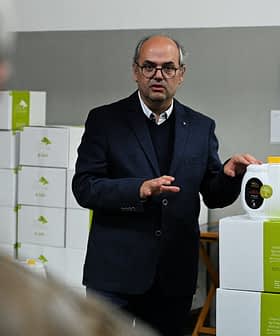The United States Trade Representative (USTR) is reviewing existing tariffs and considering whether or not to impose new ones on goods imported from the European Union.
In October 2019, the World Trade Organization (WTO) gave the U.S. the right to impose $7.5 billion worth of tariffs on imports from the E.U., as a result of illegal subsidies provided by the trading bloc to the aircraft manufacturer Airbus.
Individually packaged olive oil imports from Spain and table olive imports from both France and Spain currently face a 25 percent tariff.
In a notice published last week, the USTR said these existing import duties could be raised from their current level up to 100 percent.
Additionally, the USTR is considering whether to impose tariffs on table olives and bulk and packaged olive oils from the rest of the trading bloc, which includes Italy, Portugal, Greece, Croatia and Slovenia.
U.S. officials explained that tariffs on these countries had previously been considered and were now once again under consideration.
The total package of tariffs that the USTR is now considering is worth $3.1 billion and would cover a range of other goods, including liquors, cheese, pork, pastries, cakes, hardware and clothes.
While the USTR periodically reviews its list of current tariffs, this announcement comes right after the E.U. published its own list of potential tariffs on U.S. goods.
The trading bloc is awaiting a ruling from the WTO on whether or not it can implement these tariffs as a result of alleged illegal subsidies provided to the American aircraft manufacturer, Boeing.
The WTO was expected to rule on the issue earlier this month, but delayed its decision until at least September, citing health concerns around the Covid-19 pandemic.
E.U. officials immediately expressed their disappointment at the USTR’s announcement and have filed a formal complaint with the WTO about its decision to delay the ruling.
The E.U. has long said it would rather negotiate an end to the tariffs than impose its own. However, observers doubt that an agreement could be reached before the WTO decision is announced.









